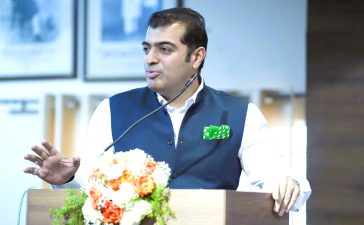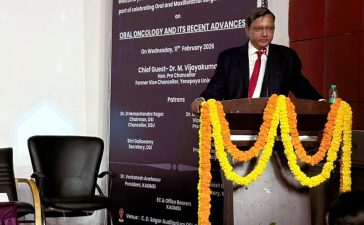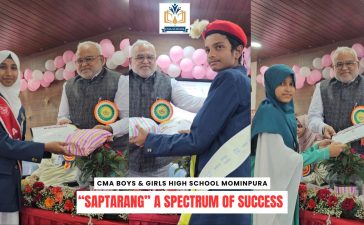Indian Journalism Must Reclaim Its Legacy, Says K.V. Prabhakar
Mandya, August 17 — On the eve of India’s 79th Independence Day celebrations, K.V. Prabhakar, Media Advisor to the Chief Minister, called for introspection among journalists, warning that the shift from political to economic leadership has reduced citizens to mere consumers while investigative journalism strays from its core purpose.
Speaking at the Press Day event organized by the Mandya District Journalists’ Association, Prabhakar urged the media to revive the values that once defined Indian journalism—a force that played a pivotal role in the freedom struggle but now risks becoming part of the problem.
From Political to Economic Leadership: A Dangerous Shift
Prabhakar highlighted the stark contrast between journalism’s past and present. “During the freedom struggle, Indian journalism was financially weak but rich in political and social will. Today, it has escaped financial poverty but fallen into a poverty of social responsibility,” he said.
He attributed this decline to the transition from political leadership to economic dominance. “Earlier, governments controlled economic forces, enabling policies like bank nationalization, land reforms, and free education. Now, economic forces control governments, upending the social order and turning citizens into consumers,” Prabhakar explained.
He illustrated this with sharp criticism: “Even withdrawing ₹500 from your own bank attracts a fee. A poor man stepping out in the morning faces taxes, GST, fines, and compound interest before returning home. Even beedis, matchboxes, and bananas come with a GST tag. Yet, journalism, which should question this exploitation, remains silent.”
Corporate Takeover of Media: Stenographers, Not Watchdogs
Prabhakar argued that corporate powers hijacked the media as the first step in shifting national leadership from politics to economics. “Newspapers and channels now serve corporate interests, reducing journalists to stenographers,” he said.
He lamented the distortion of investigative journalism: “Once focused on people’s struggles—food, livelihoods, and hardships—it has now shifted to sensationalism, fixating on private lives rather than public issues. Cameras that once captured hunger and deprivation now linger on scandal. This is not Indian journalism’s true model.”
Reviving Journalism’s Lost Values
Prabhakar stressed the need for self-criticism and revival. “Whether it’s Independence Day or Press Day, we must restore credibility, not just celebrate. If journalism doesn’t address its own crisis, it will become the problem,” he warned.
He urged journalists to “dust off the models that once guided us” and return to principled reporting. “A meaningful Press Day means reviving the ideals we’ve lost through honest introspection,” he said.
A Call to the Next Generation
Addressing the children of award-winning journalists, Prabhakar emphasized values beyond academic success. “The mother’s lap is the best place in the world. Children must learn humanity, responsibility toward parents, and real relationships—not just mobile addiction,” he advised.
Dignitaries in Attendance
The event was attended by District In-charge Minister Chaluvarayaswamy, Film Academy President Sadhu Kokila, businessman Zafrullah, Working Journalists’ Association State President Shivanand Tagadoor, Housing Minister’s Media Coordinator Lakshminarayan, and MLA Darshan Puttannaiah, among others.
Final Thought
Prabhakar’s remarks serve as a stark reminder: journalism must reclaim its role as society’s conscience, or risk irrelevance in an era dominated by corporate and economic interests.
![]()











